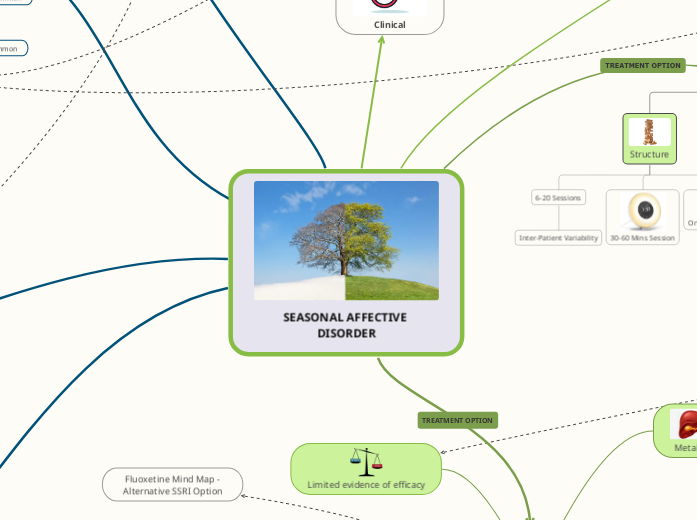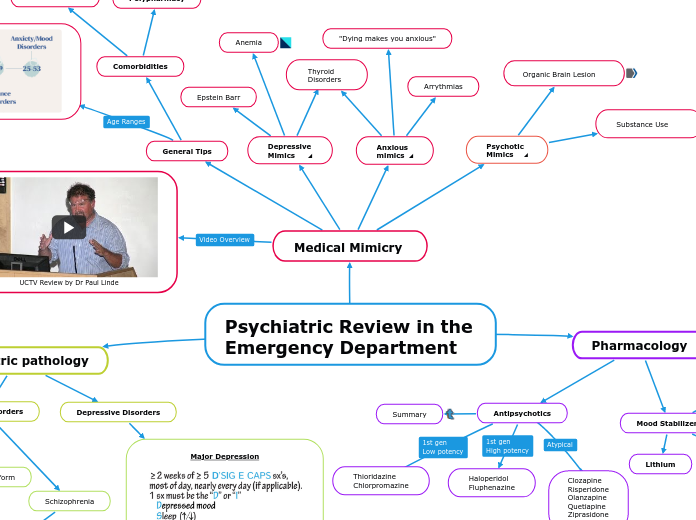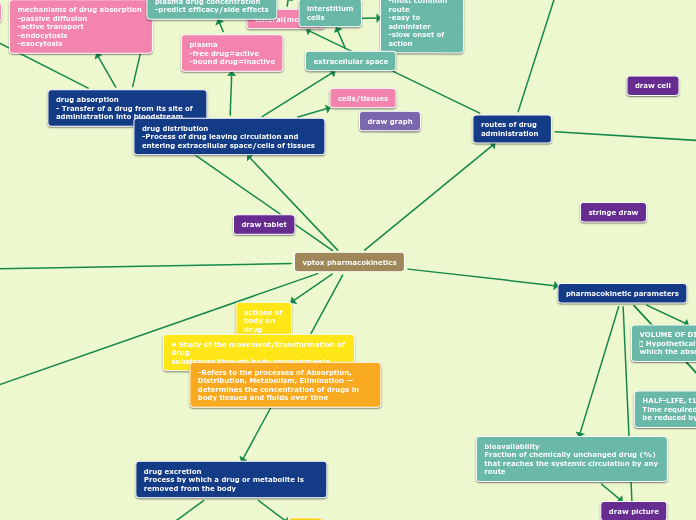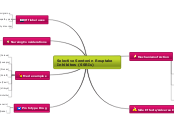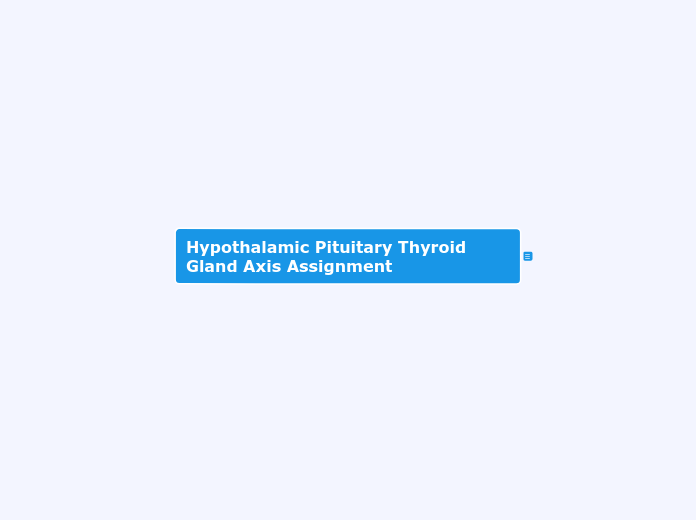Bipolar Disorder Mind Map
Fluoxetine Mind Map -
Alternative SSRI Option
PF4013
PF3009
PF3010
PF4014
PT2448
Non-Pharmacological Advice
Talk to Family and Friends about SAD Diagnosis
Healthy, Balanced Diet
Increase Physical Activity
Increase Natural Sunlight Exposure
HSE SilverCloud
Light Therapy
Side Effects:
Agitation
Eye Strain
Tiredness
Blurred Vision
Light Box
30Mins - 1 Hour Exposure every Morning
Improves Mood during the Winter Months
Special Lamp
Contraindications:
Photosensitivity
Eye Condition/Eye Damage
Improve Mood
Increase Serotonin Production
Mood Hormone
Reduce Melatonin Production
Sleep Hormone
Antidepressants First line SSRIs e.g Sertraline
Counselling
Take in the morning
Do not stop abruptly
Gradual withdrawal
Caution in pregnancy
Not recommended in the first three months
Congenital birth defects
Loss of pregnancy
Discuss with doctor
Mechanism
Increase synaptic 5-HT levels
Downregulate 5-HT1A
Initiate treatment 4-6 weeks before symptoms
Inhibit SERT
Side Effects
Dry mouth
Headache
Diarrhoea
5-HT4
Nausea
5-HT3
Sexual dysfunction
5-HT2A/2C
Anxiety
5-HT2A/5-2C
Interactions
Drugs that increase bleeding risk e.g. NSAIDs, DOACs
Sertraline inhibits uptake of 5-HT into platelets
Impaired platelet aggregation
Drugs that increase hyponatraemia risk e.g. lithium, carbamazepine
Other antidepressants e.g. TCAs, MAOIs
Serotonin syndrome
Triptans
Grape fruit juice
CYP3A4 inducer
Metabolism
CYP2B9
CYP2C19
CYP2D6
CYP3A4
Limited evidence of efficacy
Cognitive Behavioural Therapy
Clinical
OVERVIEW
Risk Factors
Northern Latitudes
Distance from Equator
Shift Workers / Nurses
Female (4:1)
History
1980s Research
Tom Wehr
Alfred J. Lewy
Norman Rosenthal
Definition
Two Seasonal Types
Autumn / Winter (SAD)
Spring / Summer (S-SAD)
Seasonal Pattern to disease
"Specifier" of MDD / BPD
Self-Guided or Instructed
Self-Guided OR Instructed
Groups or One to One
Psychological Treatment
Purpose
Problem Breakdown
Actions
Altering future behaviours
Feelings
Dealing with them Strategically
Thoughts
Unhelpful?
Unrealistic?
Structure
Once Weekly/Every Two Weeks
30-60 Mins Session
6-20 Sessions
Inter-Patient Variability
PATHOPHYSIOLOGY
Serotonin
Vitamin D Deficiency
Serotonin Firing
Serotonin Production ↓
Increased SERT
↓ Serotonin Activity
↑ Serotonin Reuptake
Increased 5% (W)
Melatonin
Underproduction
High Intensity
Prolonged Sunlight
Overproduction
Poor Intensity
Lack of Sunlight
Circadian Rhythm
Physiology
Subtopic
Light-triggered
RHP axis
Phase-advanced (Summer)
Cortisol Overproduction
Melatonin Cessation
Phase-delayed (Winter)
Delayed Cortisol Release
Prolonged Melatonin
DIAGNOSIS
Differential Diagnosis
Viral Infections
Infectious Mononucleosis
Hypoglycaemia
Hypothyroidism
GP / Psychiatrist
No Current Blood Tests / Scans
Symptom Evaluation
Seasonal Pattern Assessment
Questionnaire (SPAQ)
Final Diagnosis
S-SAD
less common
SAD
More common
Diagnostic Criteria
Frequent Depression in
Specific Season(s)
Consecutive Seasonal
Depressive Episode ≥ 2yrs
SAD and S-SAD Specific Symptoms
PRESENTATION /
SYMPTOMS
Autumn/Winter SAD
Social Withdrawal (hibernating)
Fatigue - Low energy
Hypersomnia
Overeating → weight gain
Spring/Summer S-SAD
Increased Irritability
Agitation/Anxiety
Insomnia
Poor Appetite → Weight Loss
General symptoms
Difficulty Concentrating
Feeling Stressed/Anxious
Suicidal thoughts
Feeling Worthless
Anhedonia
Desmethylsertraline
α-hydroxyketone
Excreted in the urine and faeces
Summary
SEASONAL AFFECTIVE DISORDER
